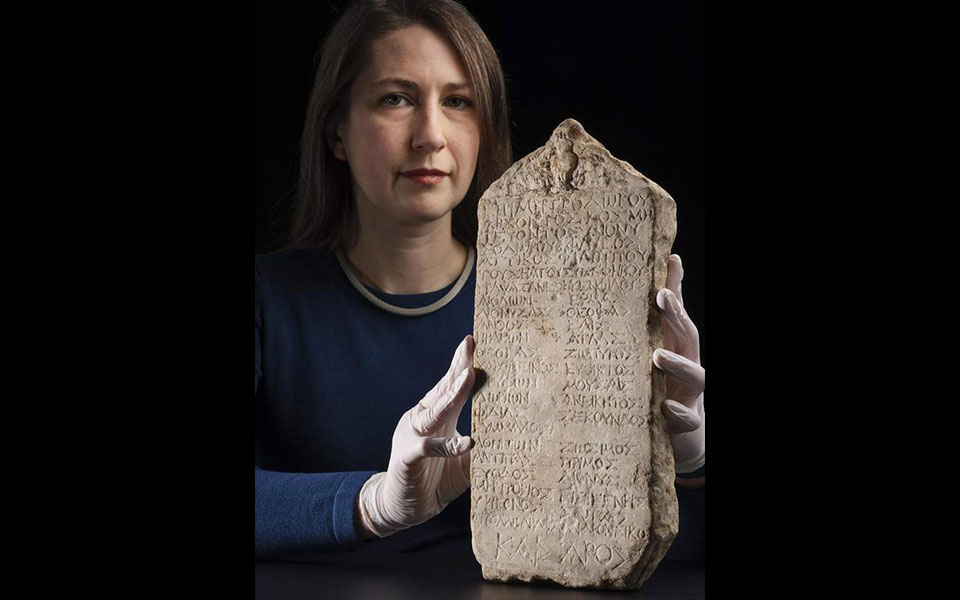Experts in the UK have discovered that an ancient Greek marble slab which had spent more than a century in storage is inscribed with the names of graduates of the Ephebic College, an elite military academy that prepared young Athenian men for adulthood, British broadcaster ITV reported on Thursday.
“On seeing it we realized that this was not a copy of an already known inscription, but it was a completely unique new discovery which had been in the storerooms of the [National Museum of Scotland] for a very long time, since the 1880s, and it listed a group of young men who called themselves co-ephebes or co-cadets and friends,” Dr Peter Liddel, a professor of Greek history and epigraphy at the University of Manchester, told ITV.
“It turned out to be a list of the cadets for one particular year during the period 41-54 AD, the reign of Claudius, and it gives us new names, names we’d never come across before in ancient Greek, and it also gives us among the earliest evidence for non-citizens taking part in the ephebate in this period,” added Liddel, who led the team that made the discovery.
Similar to a “graduate school yearbook,” the marble slab would probably have been displayed in the college and was intended to “to create a sense of camaraderie and comradeship among this group of people who had been through a rigorous training program together and felt like they were part of a cohort,” Liddel told ITV.
Containing the names of 31 young men who made it through the rite of passage, the marble slab dates to the first century AD and is believed to offer valuable insight into Athenian society at the time.
This article was previously published at ekathimerini.com.












